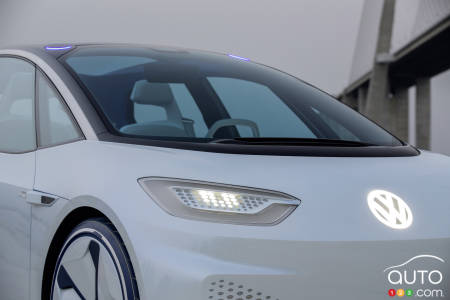Volkswagen has pledged to produce one million electric-powered vehicles annually by 2025. When you consider that the batteries that power EVs have an average lifespan of 10 to 15 years, the time to look at ways to recycle their components is soon if not now. For one thing a primary goal in producing greener vehicles is obviously to minimize environmental impact. For another, finding the raw materials needed for making EV batteries is going to get increasingly difficult – and expensive.
It’s in this context that Volkwagen has outlined its strategy for recycling components of the battery packs in its electric vehicles.
"As electric vehicles become more commonplace, digging those metals out of discarded batteries can be cheaper than digging ores from the Earth."
- Volkswagen
Some of the EV batteries removed from vehicles could repurposed fur use in charging stations or home energy storage packs, for example. The portable charging units being developed by VW can hold up to 360 kWh of energy, or enough to simultaneously charge four vehicles at a pace of 100 kW each.

The company’s component factory in Salzgitter will be used to recycle used EV batteries. Stating next year, VW says the facility will be able to recycle 1,200 tons of EV batteries, roughly equal to 3,000 vehicles every year.
"In the long term, Volkswagen wants to recycle about 97 percent of all raw materials in the battery packs. Today, it's roughly 53 percent, and the plant in Salzgitter expects to raise it further to about 72 percent."
- Volkswagen
Recycling of EV battery components is really a prerequisite for the survival and growth of electric mobility. We just looked at the example of a Quebec-based company that has developed a method for recycling virtually all of the materials of lithium-ion batteries taken from battery-powered vehicles.
In addition to the question of supply of the materials used in the manufacture of these EV batteries, it’s also worth keeping mind that in some countries the extraction of the raw materials for batteries is far from beneficial for local populations, not to mention the horrid working conditions experienced many of those tasked with doing the extracting.
Clearly, recycling EV batteries seems an indispensable way to kill several birds with one stone when it comes to making sure green cars are actually green for the environment.




